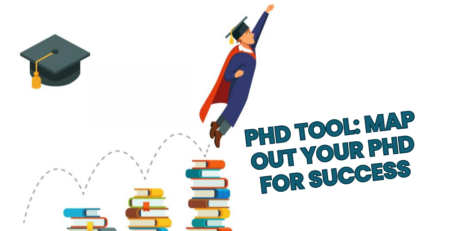Studying Advice for PhD Students
KENFRA Research Solutions2022-09-29T11:29:57+05:30Getting a PhD is most definitely not simple. Many of them experienced similar difficulties when pursuing a PhD. You name it—productivity, inspiration, or the generation of ideas that are backed by science.
The main thing is to have wise mentors and to read motivating books. Both of these sources provided me with helpful study ideas, and we would like to share some of the most important ones with you. Some of them we discovered early on while struggling to get a PhD, while others had discovered sooner. we are hoping they can be of assistance

Tip #1: Write frequently and early.
It goes without saying that the more papers you write, the better; nonetheless, that is not what I mean. I suggest that you write as frequently as you can, even if you don’t have a paper due soon.
As early as feasible in your PhD, begin writing, and write frequently. Others write once a week, while others do so everyday. The objective is to continuously record your progress, what you did, how you did it, and any challenges you faced.
When it’s time to create a full-fledged paper, getting in early writing practise will help you improve and keep your writing abilities. Writing frequently will help you build up a library of material you may use to create proposals, papers, and abstracts.
Tip #2: Read a lot of articles
You must read a lot of papers when you first start your PhD. You should gain a thorough understanding of your research area. You need to be aware of all the significant prior research. The “state of the art” is what people refer to as.
You can see where your PhD fits in after you are familiar with the state of the art in your field. How will you contribute to the field of study and broaden its scope? It also provides a road map for avoiding repetition of previous research and creating something entirely new.
After you’ve completed the majority of the reading, you’ll need to stay up with new advancements in your subject by reading fresh articles and talking to people about the current state of research.

Tip#3: Read diverse sources
PhD students experience difficulties in time management, motivation, and creativity in addition to academic difficulties. You might find some of these areas improved by reading papers, but not necessarily. You should thus read a variety of books.
As a PhD student, productivity, interpersonal abilities, and business texts can all help you advance. They offer helpful advice on how to develop fundamental abilities that are applicable in a variety of vocations, as well as study ideas.
Keep in mind that you must use your imagination, and that reading only one form of content (scientific publications in your particular sector) may cause you to think more narrowly.
Tip#4: Work in quick sprints.
Another study hack from the software development industry increased my output. Some refer to this as “agile development,” while others refer to “ship it soon and collect feedback” or “rapid prototyping.”
Have you ever held off on showing someone anything until you thought it was perfect only to discover that, well, they didn’t agree?
You want to stay away from wasting time like that. The goal is to work quickly to build something that is barely adequate, exhibit it, solicit feedback, and then enhance it in a subsequent sprint. and keep making iterations.
The Pomodoro Technique is a fantastic time management method that revolves around the concept of working in brief sprints.
Tip #5: Pay attention to incremental improvements
I lost interest in finishing my PhD halfway through since I thought I hadn’t accomplished much. I made the mistake of tying my happiness on achieving significant goals, like publishing a paper.
Wrong. They take far too long. Along the way, I needed a few little doses of sweet PhD love.
Everything started to seem better as I began to concentrate on the more minute indications of development. I was confident that I was moving in the correct direction if I completed three little things on a given day.
You should consider “Am I closer than I was three months ago” rather than “Am I there yet?”

Tip #6: Don't skimp on quality
You could be tempted to do things throughout your PhD that seem to be beneficial in the near term but could damage your reputation over time. These evasions concern your dependability, thoroughness, and accountability.
Imagine that you have been working on your paper for six months and are almost finished. You discover a minor error in the data, but you don’t believe it will have a negative impact on the final result. So why bother trying to solve it? Why cite every relevant work when a few will do, for example? Why not borrow someone else’s method, but don’t admit it, making it appear as though it was your own invention?
You will eventually pay for this carelessness. People will eventually lose faith in you. They won’t be interested in working with you. They won’t reference your works. Avoid cutting corners even if it means doing more effort!








Leave a Reply